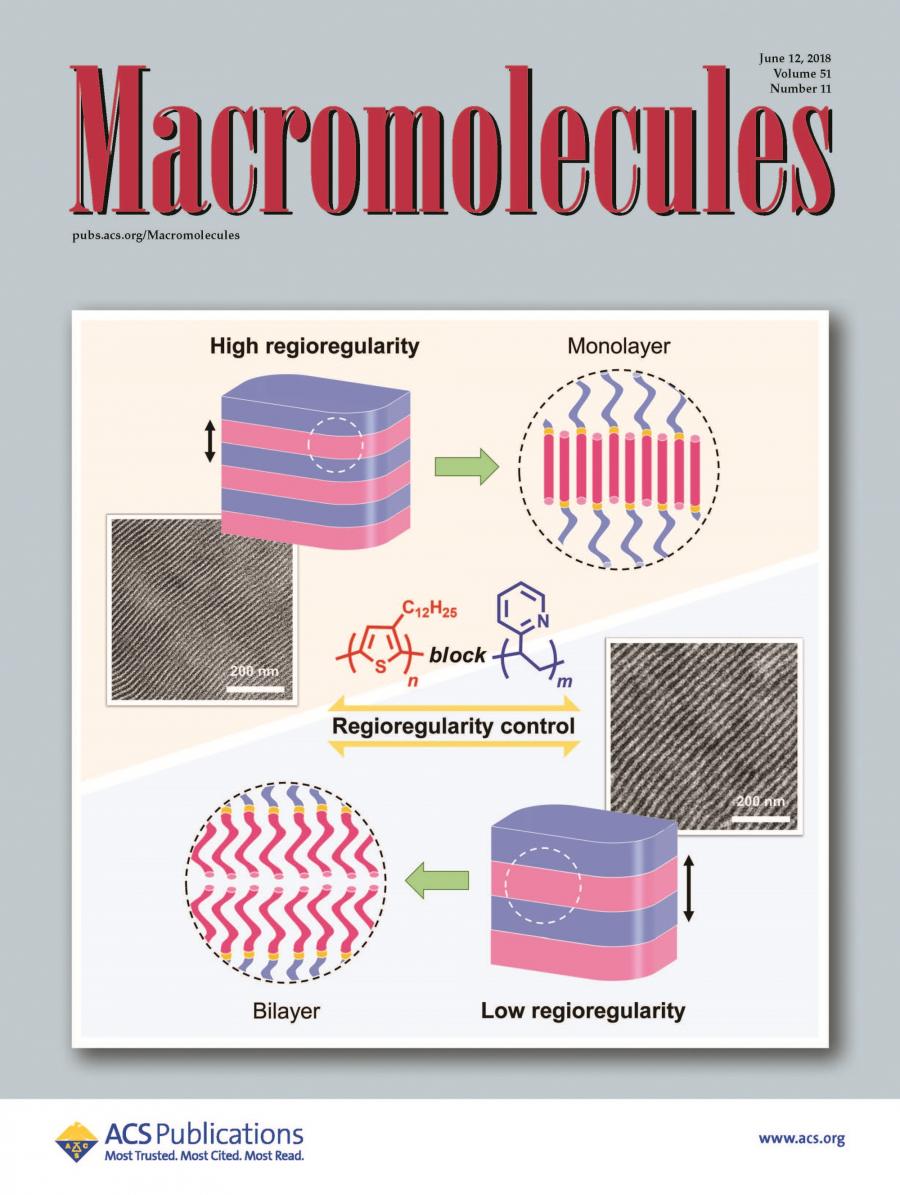- [Outside front cover] Domain Structures of Poly(3-dodecylthiophene)-Based Block Copolymers Depend on Regioregularity
- 관리자 |
- 2018-06-14 17:17:39|
- 6981
- 2018-06-14 17:17:39|
Title: Domain Structures of Poly(3-dodecylthiophene)-Based Block Copolymers Depend onRegioregularity
Author: Jin-Seong Kim, Junghun Han, Youngkwon Kim, Hyeonjung Park,Jonathan P. Coote Gila E Stein*, and Bumjoon J. Kim*
Journal: Macromolecules 51, 11, 4077-4084, Outside frontcover
Abstract: Microphase-separation behavior of conjugated–amorphous block copolymers (BCPs) isdriven by a complex interplay between Flory–Huggins interaction (χ), liquid crystalline (LC) interaction, and crystallization. Herein,in order to elucidate the influence of LC interaction on the morphology of theBCPs, we report the effects of regioregularity (RR) on the microphaseseparation and molecular packing structures ofpoly(3-dodecylthiophene)-block-poly(2-vinylpyridine) (P3DDT-b-P2VP). Todecouple the effect of LC interactions from crystallization kinetics, weinvestigate the morphological behavior of the P3DDT-b-P2VP at above the meltingtemperature of P3DDT (∼160 °C).Both electron microscopy and X-ray scattering show an abrupt reduction in thedomain spacing of both lamellar and cylindrical phases as the RR of P3DDT blockincreases. Specifically, lower RR (i.e., 85, 79, and 70%) BCPs have largerdomain spacings than high RR (94%) by 50% (lamellar) or 80% (cylindrical), eventhough the overall molecular weights and P2VP volume fractions were similar foreach RR. We propose that the RR-driven transition in domain spacing is causedby a change in P3DDT conformations and interchain interactions. When RR is low,the system assembles into a typical bilayer structure like other semiflexibleand flexible block copolymer systems. When RR is high, the less flexible P3DDTchains are extended, driving their assembly into an LC monolayer.Significantly, this study demonstrates that tunable RR provides a simple routeto manipulate melt state self-assembly of conjugated–amorphous materials.

| 첨부파일 |
|
|---|

